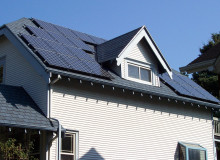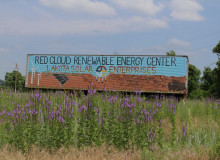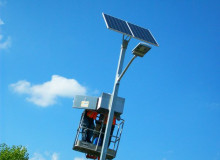Solar
Sunlight is the most abundant energy source known to man: it powers solar cells, warms the air and is the essential energy for photosynthesis. PF Members offer innovative plans to utilize this valuable resource.
Planet Forward Correspondent | George Washington University
Hannah Krantz and Aleena Fayaz speak to Candace Clark, a Ph.D. candidate at Tuskegee University, in this high-spirited podcast that discusses the importance of black voices in climate solutions, sustainable housing, and much more.
Founding Director, Planet Forward
In our latest episode with PBS's Peril and Promise, produced in association with ASU's Global Futures Laboratory, we meet two individuals looking to the sun for inspiration to move the planet forward.
The George Washington University
To lower their environmental impact, restaurants are transitioning their operations to be more sustainable and climate friendly.
Arizona State University
After the closing of Arizona's last coal mine, the Navajo Nation is investing in renewable energy. The Nation is looking to solar for the future.
Arizona State University
Solar panels are a common way to generate renewable energy, but one company is using solar panels to pull water out of thin air.
Planet Forward Correspondent | University of Wisconsin-Madison
When the streetlights in Highland Park, Michigan, went dark one night in 2011, the community came together with a solution to keep their streets safe — and launched a larger vision for the city.
The George Washington University
The solar industry has a chance to shape the larger narrative on energy justice, and advance social equity by ensuring energy security for all socioeconomic levels. Community solar is an extremely viable solution to challenge energy inequality.
University of Wisconsin-Madison
This story of environmental injustice in southern Wisconsin shows how we can make a difference on a local level to improve the lives of people all over the world.

This is just part of a 7.2 kW rooftop solar system in Bayview, Wisconsin, as seen in 2007. (M.J. Monty/Creative Commons)
Northwestern University
Solar power is now the third most popular renewable energy source, behind water and wind, according to a new report by the U.S. Energy Information Administration.
SUNY ESF
Current political and social systems resist meaningful change. As a result, a punk subculture, committed to portraying and moving toward a sustainable future, has formed.







_0.jpg%3Fitok=HHDwASgE)
